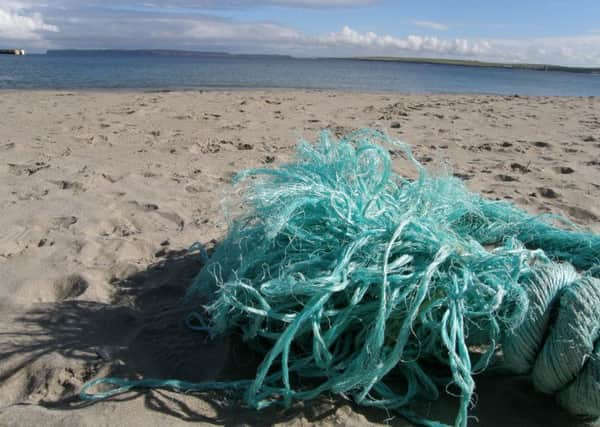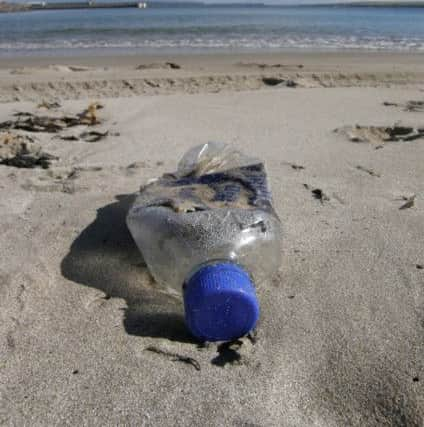Scots researchers tackle marine pollution


Researchers at a Scottish institute are leading a new European project aimed at tackling marine pollution by encouraging the recycling of plastic litter.
The estimated eight million tonnes of plastic litter which enters the seas and oceans annually not only impacts on marine wildlife but creates an eyesore on beaches.
Advertisement
Hide AdAdvertisement
Hide AdAround one million seabirds and 100,000 marine mammals are killed each year as a consequence of consuming or becoming entangled in discarded plastic.


They fear that, if current trends continue, by 2025 there could be one tonne of plastic for every three tonnes of finfish in our seas.
But now, the €1.5 million (£1.1m) ‘Circular Ocean’ project is being led by the Environmental Research Institute (ERI) of the North Highland College UHI.
The initiative, funded by the EU’s Northern Periphery and Arctic Programme, aims to help reduce marine litter by encouraging its removal and enable communities and entrepreneurs across northern Europe to utilise plastic litter as a potential resource.
Already marine litter has been used to make new products including trainers, rucksacks, socks, jackets, skateboards, carpet tiles and sunglasses.
Project lead Dr Neil James of ERI said “Virtually all plastic ever produced is still with us today, with more entering the seas each year to the detriment of fish, birds, turtles and marine mammals.
“If we utilise this so-called waste material for a new purpose we reduce the amount of new plastic created, reduce marine pollution, and encourage new green enterprises.
“Our aim in Circular Ocean is to facilitate this in the northern Europe and Arctic region.”
Advertisement
Hide AdAdvertisement
Hide AdIn remote regions, renowned for their natural beauty and wild environments, monitoring, collecting and recycling marine litter can be difficult due to low population densities and prohibitive road and sea transport costs.
But with research partners throughout Scotland, the Republic of Ireland, England, Greenland and Norway, the ‘Circular Ocean’ project aims to overcome such obstacles by creating an online, open- access network allowing anyone to share and access practical and innovative ideas of how to reuse plastic.
Dr James added: “It is hoped that eco-innovation using resources otherwise wasted and lost to the economy will encourage the development of local businesses and benefit rural economies.”
By providing expert guidance and support on eco-innovation, Circular Ocean will also encourage enterprise based on the reuse and recycling of discarded fishing nets and ropes which currently represents 10 per cent of marine litter.
The project will oversee the running of an eco-innovation competition designed to encourage creative ideas of how to reuse discarded fishing nets.
Open to all designers, engineers, entrepreneurs, and students with northern Europe and Arctic region, the competition will seek a new and innovative product and/or service solutions related to fishing net reuse.